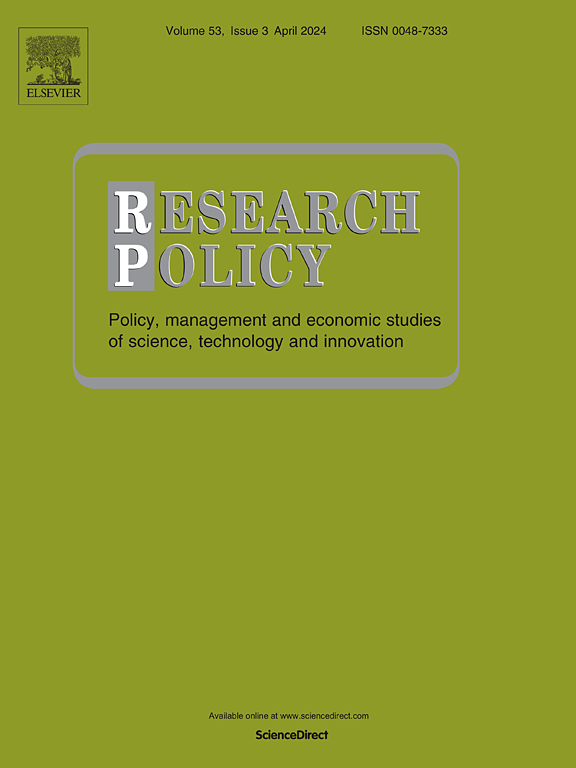高等教育机构研究基础设施投资的影响:来自波兰和捷克的证据
IF 8
1区 管理学
Q1 MANAGEMENT
引用次数: 0
摘要
对研究基础设施(RIs)的投资使大学能够提高科学卓越性、国际化和产业合作。该研究利用了一个独特的大型数据集,该数据集基于2007-2013年欧盟凝聚力基金,记录了捷克和波兰高等教育机构(HEIs)获得的RIs资助。在这个相对较短的时期内,这两个国家都从分配给RIs的资金中获得了不成比例的高份额。该研究分析了RIs资助对高等教育机构的影响,包括出版物数量、出版科学家数量以及与科学和工业伙伴的合作。它使用模糊集定性比较分析(fsQCA)来探索实现预期结果的必要和充分条件。fsQCA确定了大型/小型、综合/专业大学、健康和生命科学/物理科学和工程基础设施以及区域经济发展水平的等效路径。结果揭示了高等教育机构在投资RIs时可能采用的5种不同方法,这取决于影响RIs资金有效性的组织和环境变量的现有配置。研究结果为决策者和高等教育机构管理人员考虑如何为高等教育机构优化配置资金提供了有价值的见解。本文章由计算机程序翻译,如有差异,请以英文原文为准。
The effects of investments in research infrastructures of higher education institutes: Evidence from Poland and Czechia
Investments in research infrastructures (RIs) enable universities to enhance scientific excellence, internationalization and industrial collaboration. The study leverages a unique, large dataset of RIs funding awarded to higher education institutes (HEIs) in Czechia and Poland, based on EU cohesion funds, 2007–2013. Both countries benefited from disproportionally high shares of funding allocated to RIs in this relatively short period. The study analyzes the effects of RIs funding for HEIs, including the counts of publications, publishing scientists and collaborations with scientific and industrial partners. It uses the fuzzy-set qualitative comparative analysis (fsQCA) to explore conditions necessary and sufficient to accomplish the expected outcomes. fsQCA identified equifinal pathways for large/small, generalist/specialized universities, health and life science / physical science and engineering infrastructures as well as levels of regional economic development. The results revealed 5 distinctive approaches that HEIs might adopt while investing in RIs, depending on existing configurations of organizational and environmental variables that influence the effectiveness of RIs funding. The findings offer valuable insights for policy makers and HEI management considering how to optimally allocate funds for RIs.
求助全文
通过发布文献求助,成功后即可免费获取论文全文。
去求助
来源期刊

Research Policy
MANAGEMENT-
CiteScore
12.80
自引率
6.90%
发文量
182
期刊介绍:
Research Policy (RP) articles explore the interaction between innovation, technology, or research, and economic, social, political, and organizational processes, both empirically and theoretically. All RP papers are expected to provide insights with implications for policy or management.
Research Policy (RP) is a multidisciplinary journal focused on analyzing, understanding, and effectively addressing the challenges posed by innovation, technology, R&D, and science. This includes activities related to knowledge creation, diffusion, acquisition, and exploitation in the form of new or improved products, processes, or services, across economic, policy, management, organizational, and environmental dimensions.
 求助内容:
求助内容: 应助结果提醒方式:
应助结果提醒方式:


